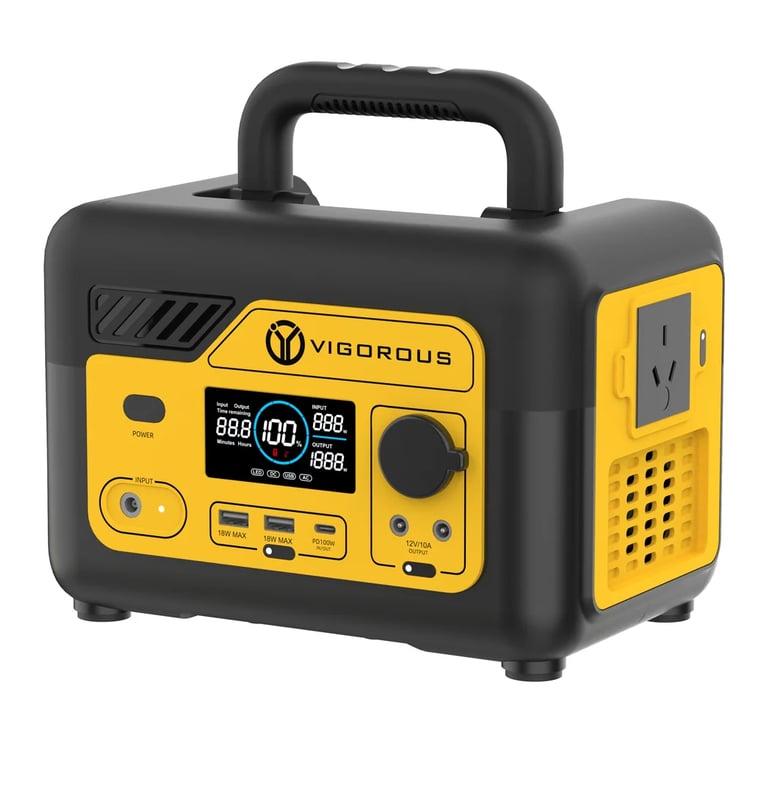What is a portable power station?
Benefits and Applications of Portable Power Stations
Portable Power Hub
3/10/20242 min read


Definition and Function
A portable power station, also known as a portable power generator or a portable battery generator, is a compact device that stores electrical energy and can provide power to various electronic devices. It consists of a rechargeable battery, an inverter to convert the stored DC (direct current) power into AC (alternating current) power, and multiple outlets to connect your devices.
These power stations are designed to be lightweight and easy to carry, making them ideal for outdoor activities or situations where a traditional power source is not available. They can be charged using a wall outlet, a car charger, or even solar panels, depending on the model.
Benefits and Applications
Portable power stations offer numerous benefits and can be used in a variety of applications. Here are some of the key advantages:
Portability: As the name suggests, the main advantage of a portable power station is its portability. You can easily carry it with you wherever you go, ensuring you have a reliable power source at all times.
Quiet and Emission-Free: Unlike traditional gas-powered generators, portable power stations are quiet and produce zero emissions. This makes them environmentally friendly and suitable for use in noise-sensitive areas such as campsites or residential neighborhoods.
Versatility: Portable power stations come with a variety of outlets, including AC outlets, USB ports, and DC ports. This allows you to power a wide range of devices, such as smartphones, laptops, cameras, mini-fridges, CPAP machines, and more.
Emergency Preparedness: Having a portable power station on hand can be invaluable during emergencies or power outages. It can keep your essential devices running, such as medical equipment, communication devices, or lights.
Factors to Consider
When choosing a portable power station, there are several factors to consider:
Battery Capacity: The battery capacity determines how much power the station can store. Consider your power needs and how long you'll need the station to run without recharging.
Power Output: Different power stations offer different maximum power outputs. Ensure that the station can handle the power requirements of your devices.
Charging Options: Look for a power station that offers multiple charging options, such as AC, car charger, and solar panels, to suit your needs and provide flexibility.
Weight and Size: If portability is a priority, consider the weight and size of the power station. Lighter and more compact models are easier to carry.
In conclusion, a portable power station is a compact and versatile device that provides a reliable source of power in various situations. Whether you're an outdoor enthusiast, a frequent traveler, or simply want to be prepared for emergencies, a portable power station is a worthwhile investment.
Subscribe
Be the first to receive our latest news and exclusive deals!